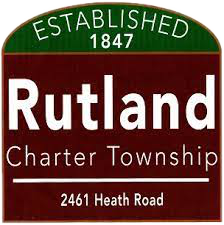Assessing
Departments
Contact

Dennis McKelvey
Assessor
Office Phone
(269) 948-2194, ext. 14
Office Hours
Monday – Thursday | 9:00 a.m. – 3:00 p.m.
Property Taxes
On March 15, 1994, Michigan voters approved the constitutional amendment known as Proposal A. Proposal A established Taxable Value as the basis for the calculation of the property taxes. Increases in Taxable Value are limited to the percent of change in the rate of inflation or 5%, whichever is less. This means that most property owners can expect property taxes to go up annually even if there is a decrease in assessed value.
Assessed Value (AV):
Each year the local assessor is required by law to determine the Assessed Value of each parcel of real property based on the condition of the property as of Tax Day December 31 of the previous year. Land value is determined by sales in a specified time frame. Building value is determined using the State Tax Commission construction cost that includes both labor and materials. Assessed Values for properties that have been sold are compared to the sales price of that property. This is known as a Sales Study. Changes to Assessed Value are driven by Sales Studies.
State Equalized Value (SEV):
The State Equalized Value is the Assessed Value as adjusted following the county equalization and the state equalization. Generally, these values will be the same.
Taxable Value (TV):
If a property experienced a Transfer of Ownership , the Taxable Value will be the same as the State Equalized Value for the year following the change of ownership. Thereafter, Taxable Value will be limited to the rate of inflation plus new construction.
Foreclosure Sales:
In the past Foreclosure sales were not considered a valid sale. The foreclosure sale was not used when adjusting Assessed Values to market values in sales studies. With the recent increase in foreclosure sales specific guidelines have been established by the State Tax Commission to determine if they can be considered arms length transactions and included in Assessed Value setting sales studies. These guidelines are stringent enough to prohibit most foreclosures from being considered in the analysis of value.
Real Property Classifications:
(A label placed on property based on definitions established by the State Tax Commission)
Agricultural |101 and 102
Commercial | 201 and 202
Industrial | 301 and 302
Residential | 401 and 402
Personal Property Classifications:
Commercial | 251
Industrial | 351
Utility | 551
* Real and Personal Property Classes for assessing purposes are not the same as zoning classes of property.
Principal Residence Exemption (P.R.E.) of 18 School Mills:
If you own and occupy your home before May 1st of this year you are entitled to a Principle Residence Exemption from school operating taxes if you file before the exemption. If you purchased or moved into your home on or after May 2nd of this year your Principle Residence Exemption will not start until the following year. If you own multiple properties, only one can receive the exemption. To qualify for a P.R.E. the home should be the address from where you register to vote, where you show as your residence on your driver’s license, and the address indicated on your income tax filing. How does it effect taxes? If a 100% P.R.E. is applied, it exempts you from the 18 mills school operating.
Notice of Assessment:
Each year in February, prior to the March meetings of the local boards of review, an informational notice is mailed out to each property owner. The Notice of Assessment has the following information on it; Assessed Value, Taxable Value, Property Classification, percent of exemption as a Principal Residence or Qualified Agricultural Property, and if there was or was not a Transfer of Ownership. The March Board of Review meeting dates and times are also included in this notice.
March Board of Review:
If you believe the Assessed Value is more than half the value of your property, you may appeal the Assessed Value, Taxable Value, Property Classification, Principal Residence Exemption, Qualified Agricultural Exemption, and Hardship Exemption at the March Board of Review. Board of Review members are property owners within the Township appointed to listen to your concerns. They have the authority to increase, decrease, or leave the Assessed Value unchanged. Only the current year value may be appealed at the March Board of Review. Of all the taxes we pay each year, this (property tax) is the only one we have a right to appeal.
Land Division Split Process:
Under the 1997 State Land Division Act, to sell a part of your property, of less than 40 acres, you will need to fill out and submit a land division split application for approval by the township. Call the office to obtain a land division split application. A completed application will be reviewed by the Assessor to determine if it complies with the law and local zoning requirements.

